Introducing our list of the greatest soccer players since 2000
Throughout 2024, theScore's Eras project evaluated and ranked the top 25 performers of the past 25 years in MLB, the NBA, NFL, NHL, and the Olympics.
This week, we're counting down the greatest male soccer players since 2000, a transformative spell defined by the dominance of Lionel Messi and Cristiano Ronaldo, two all-time greats whose enduring rivalry and stranglehold on the sport may never be replicated.
Rankings: 25-21 (below) | 20-16 | 15-11 | 10-6 | 5-1
The soccer landscape changed forever on Dec. 14, 2000.
That's when Lionel Messi, then 13, signed his first "official" Barcelona contract on an infamous (and now wildly expensive) napkin. The sport hasn't been the same since.
All Messi's done is score over 800 goals, win 46 trophies, hoist the Ballon d'Or a record eight times, and - at long last - achieve immortality in Argentina by ending a World Cup drought that spanned nearly 40 years. Decent career, that.
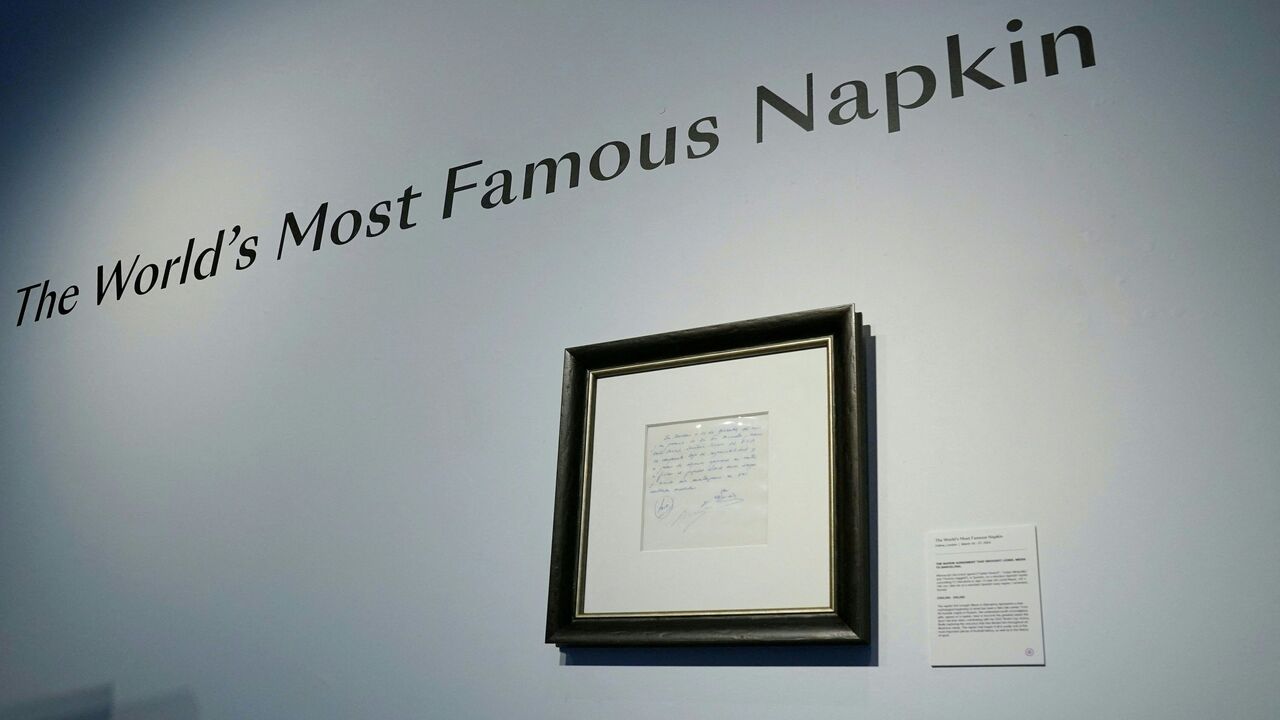
That it all coincided with Cristiano Ronaldo's superhuman exploits, often in titanic head-to-head battles between two of the game's most storied institutions, is almost impossible. Messi and Ronaldo's influence on the sport will forever be indelible, even if, in 2024, their time as soccer's most spellbinding practitioners is clearly over; one's made Major League Soccer his playground, while the other's scoring goals for fun in Saudi Arabia. It's not exactly El Clasico.
But with both still active, and the year 2000 providing a clean, clear starting point, we're taking this opportunity to rank the best players of the last 25 years. While this list is ultimately a celebration of their unforgettable era, it's also an opportunity to shine light on the brilliance of their contemporaries, whose GOAT credentials never stood a chance while Messi and Ronaldo towered over everyone and everything.
You won't agree with everything on this list. You might not agree with anything on it. There's no definitive "right" answer, no single barometer to make these comparisons, but that's part of the exercise's appeal. It's supposed to elicit a reaction. It certainly did for us. We spent weeks considering and debating dozens of sensational footballers before whittling, ranking, and - on several occasions - re-ranking the candidates.
We ultimately compiled a 25-man list heavy on attacking genius. There's still room for magnificent midfielders of all kinds, though, while defenders and goalkeepers are present, too. Inevitably, European football's top clubs feature prominently. In an era where power has been consolidated among a group of wealthy elite, the biggest teams gobble up all the premium talent and for the most part don't let go. Those squads, headlined by eternal Spanish rivals Barca and Real Madrid, are well represented.
And then there's the fluid nature of the sport itself, which presents its own unique challenge.
Soccer, always in some state of reinvention, has continued to transform over the last 25 years. It's undergone multiple stylistic changes as managers concocted new tactical schemes, while others responded naturally by trying to either copy or combat those innovations. Whereas teams once put greater emphasis on physicality and pure athleticism to overrun the opposition, the famed tiki-taka passing revolution perfected by Pep Guardiola's Barcelona - and the all-conquering Spanish national team of the time - had its turn as the dominant approach. Until it wasn't. Astute coaches crafted defensive shells and counterattacking plans to thwart those possession-based sides. Until those counterattacks were stymied, in turn, by high-intensity gegenpressing. Around and around we go.
All of that's helped put an emphasis on certain positions and types of players at various times. The traditional No. 10 role, once a hallmark of the sport, is now largely an afterthought. Some of the game's greatest showmen and artists were phased out with it. Deep-lying playmakers took over as vital, beloved figures. Inverted wingers replaced traditional wide players. Full-backs, with more space to exploit as those wingers cut inside, became key creators. Rangy defensive midfielders had to cover the spaces they were vacating, of course. Defenders and even goalkeepers needed to be cultured with the ball at their feet. The era was in some cases as responsible for creating the superstar as the player himself.
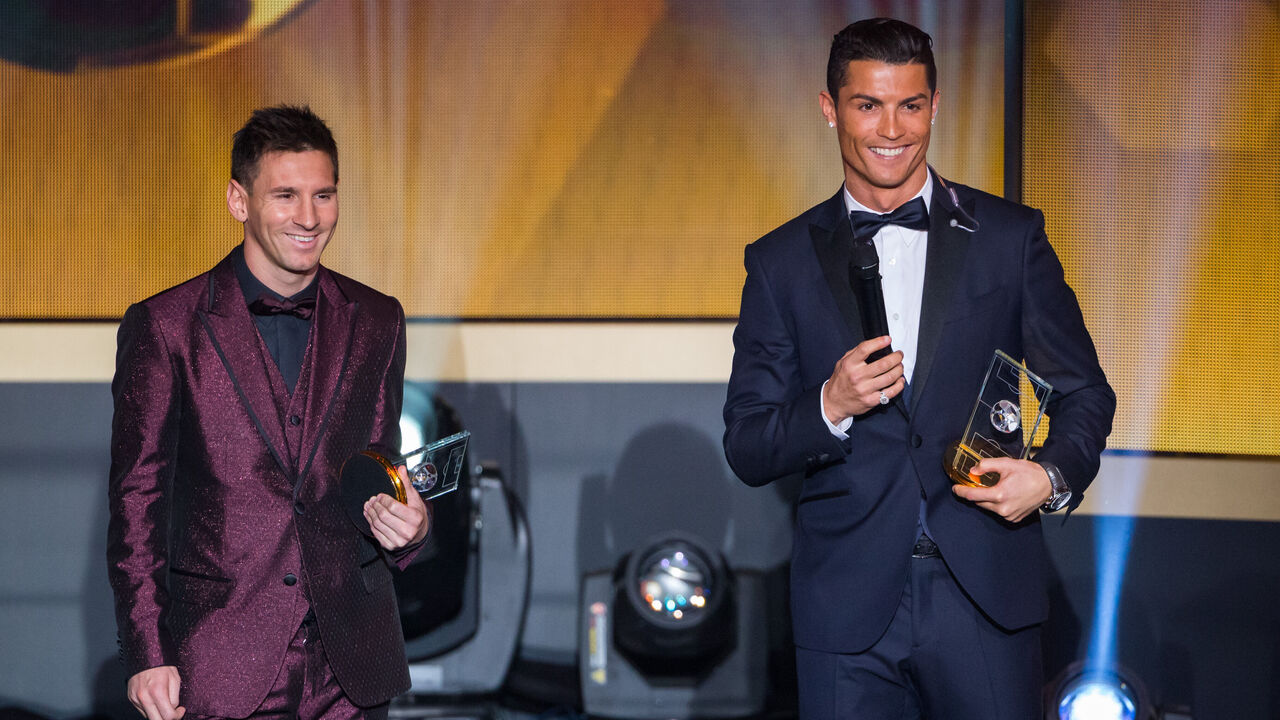
Compared to other sports in this wide-ranging series - baseball, in particular - soccer's data revolution hasn't been nearly as pervasive. It's still in its relative infancy. Advanced analytics for certain positions remains limited, while even the most basic statistics from the earliest part of this century are scarce at best, and wholly absent at worst. The numbers informed some of our decisions, breaking ties when nothing else could, but they couldn't be the sole consideration. We had to take a holistic approach.
This is our best effort to quantify this shape-shifting, oft-unquantifiable sport.
There was no single factor that guaranteed inclusion. Not even the Ballon d'Or alone served as a panacea. We evaluated peak performance, the size and breadth of a player's trophy cabinet - on both an individual and team level - international success (which isn't created equal for everyone), influence on the sport, and - especially - sustained excellence over time. The latter, best evidenced by Messi and Ronaldo, carried significant weight. Intrinsically intertwined, the pair set the impossibly high standard against which all others are measured.
An ultra-critical note to keep in mind: only the last 25 years were taken into consideration when evaluating the bevy of worthy contenders for this list. Accomplishments prior to 2000 were omitted. Obviously, that had consequences, most notably for Zinedine Zidane and Ronaldo Nazario. The French and Brazilian icons, inarguably two of the best footballers ever, made our list, but the timeline was a limiting factor in how high they could ascend.
That criteria had a more tangible impact on Paolo Maldini, the AC Milan legend regarded by many as the finest defender in history. His incredible longevity allowed him to play, and win, into the early 2000s, but too much of his career, including his peak, had already passed by then. Erling Haaland, meanwhile, had the opposite problem. In only his fifth full season in one of Europe's top leagues, he simply hasn't been playing long enough to justify inclusion. Come back in a few years and he could be near the very top. For now, though, neither made our final list. It can be easy to valorize the past - nostalgia is powerful. Conversely, recency bias can cloud judgement. We tried to find middle ground. It wasn't easy.
The likes of Andrea Pirlo, Steven Gerrard, and Frank Lampard came close but didn't crack the list. They were agonizing exclusions. The same is true for Wayne Rooney and Sergio Aguero, who registered a combined 392 Premier League goals and sit third and fifth on the league's all-time scoring chart, respectively. They were our final cuts, undone by a lack of international success at the senior level. Harry Kane and Francesco Totti, meanwhile, lack the necessary trophies. A player's entire body of work was put to the test.
In that regard, Messi and Ronaldo stand alone. Who came closest to reaching their heights in the 2000s? We'll try to answer that question as we unveil our list.
25. Kaka 🇧🇷
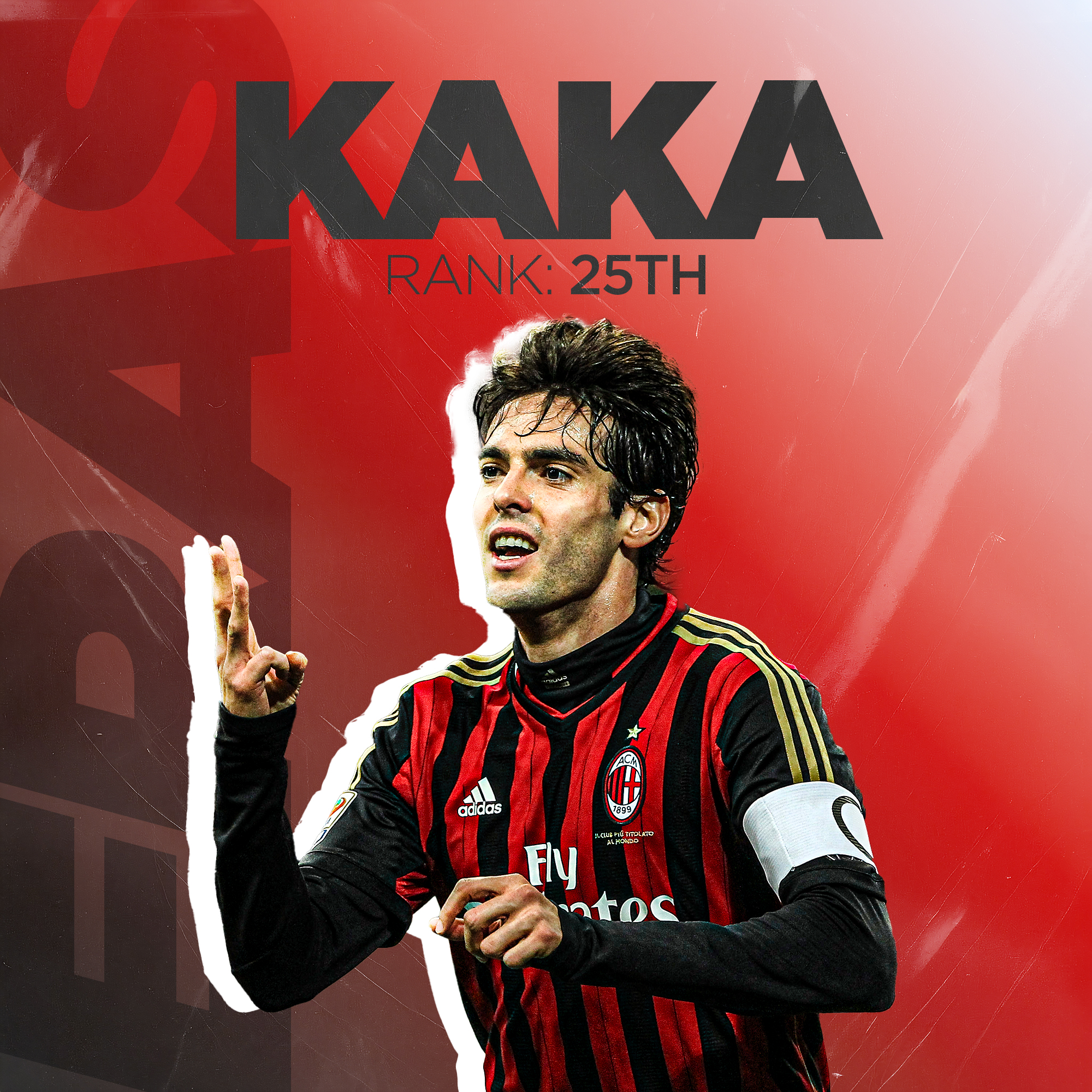
Era teams: Sao Paulo 2000-03, 2014; AC Milan 2003-09, 2013-14; Real Madrid 2009-13; Orlando City 2014-17; Brazil 2002-16
Signature performance: Few players, if any, possessed grace and power in equal measure like Kaka. Manchester United witnessed that firsthand in 2007, when Kaka put on a show in the Champions League semifinals. He scored twice in the first leg at Old Trafford, including one of the great solo efforts in tournament history that literally left multiple defenders crumpled on the pitch in his wake. In their desperation to stop him, Gabriel Heinze and Patrice Evra crashed into one another, bamboozled and beaten by Kaka's skill, acceleration, and inventiveness.
He scored again in the second leg, and was central to AC Milan's 2-1 victory over Liverpool in the final, winning the free-kick that led to his team's opener before splitting open the Reds' backline to set up Filippo Inzaghi's eventual winning goal as the Italian club hoisted the coveted trophy for the seventh, and, to date, last time.
Why he's here: Compared to many of his contemporaries on this list, Kaka's prime didn't last nearly as long. It's the main reason why he only squeaked in, as opposed to being a comfortable entry. His Real Madrid tenure was largely a letdown, too, his body beginning to betray him after his expensive 2009 transfer. There are credible arguments for others in this spot - we had them. But Kaka's peak, however short, was absolutely irreproachable. In full flow, the Brazilian was unstoppable, balletic and explosive at the same time.
He warranted inclusion on the power of his 2007 accomplishments alone. In addition to the aforementioned Champions League triumph - a tournament he led in scoring that year despite not being a striker - Kaka also took home the UEFA Super Cup, Club World Cup, and was named Player of the Year by FIFA, FIFPro, UEFA, and Serie A, among others.
He closed out 2007 with the biggest individual prize of all, beating both Ronaldo and Messi to the Ballon d'Or. It would be over a decade before anyone else replicated that feat. This sport, like most, doesn't lend itself well to consensus. But in 2007 everyone agreed on one thing: Kaka was the best player in the world.
24. Sergio Ramos 🇪🇸
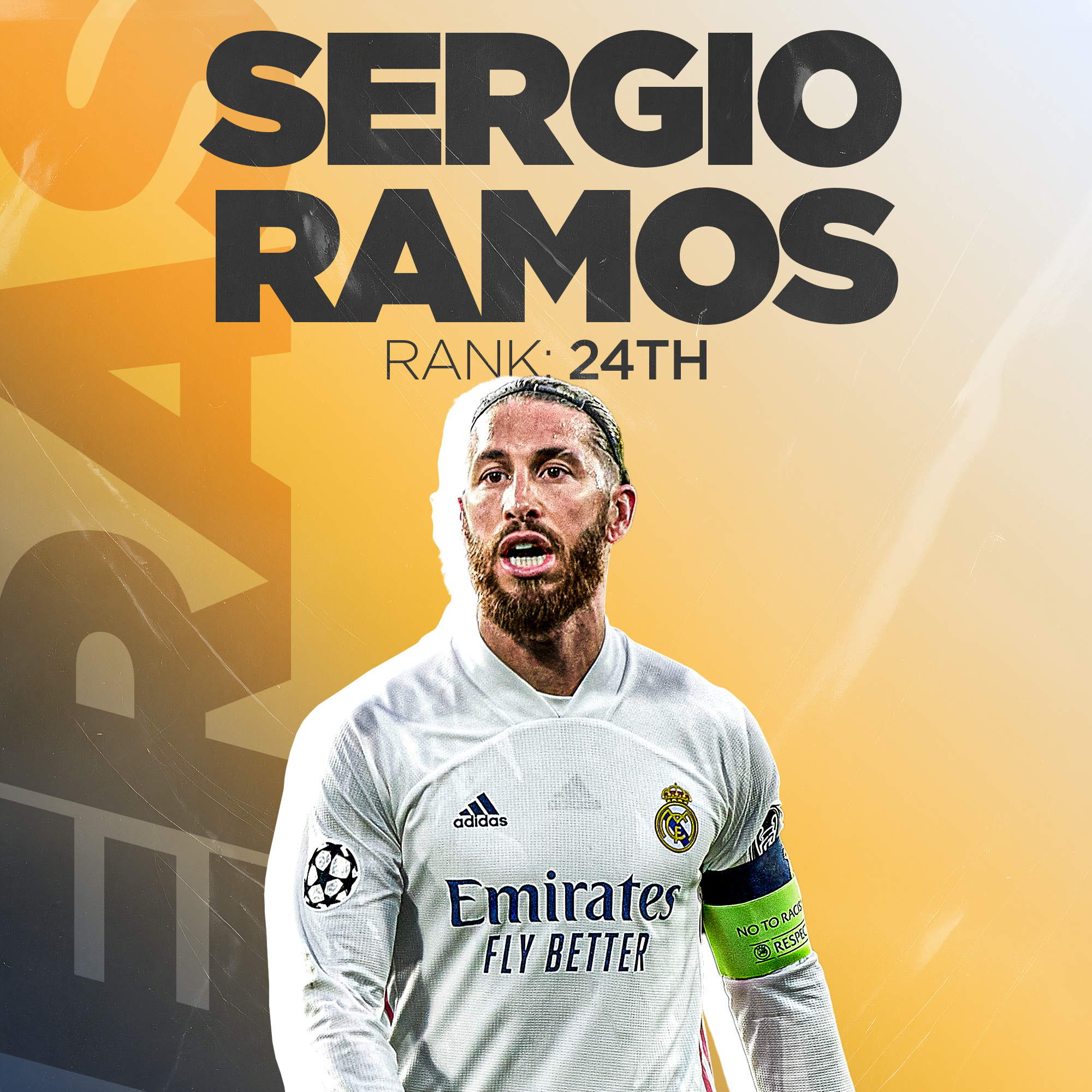
Era teams: Sevilla 2004-05, 2023-24; Real Madrid 2005-21; PSG 2021-23; Spain 2005-21
Signature performance: Ramos scored 101 goals for Real Madrid, an absurd total for a defender. None mattered more than his stoppage-time equalizer against city rivals Atletico Madrid in the 2013-14 Champions League final. Trailing 1-0, the Spaniard, who also scored twice in the semifinals that season, delivered a perfect downward header off a corner kick in the 93rd minute to send the tense match to extra time.
Cerebral inside the penalty area, Ramos worked his way through traffic, timed his jump, hung in the air, and met the outswinging ball at the penalty spot. Future teammate Thibaut Courtois, a real-life Stretch Armstrong, couldn't get a hand on it before the ball nestled into the bottom corner of the Atletico goal. Real Madrid went on to claim a 4-1 win in extra time, ending the club's 12-year wait for its 10th European Cup - the vaunted "La Decima" - and kickstarting a commanding run of four Champions League titles in five years. Ramos was vital to all of them.
Why he's here: Love or hate him, Ramos is the defining center-back of his generation. Several others, like compatriots Carles Puyol and Gerard Pique, have strong claims to that throne; the former was a better pure defender, while the latter was a more precise, accomplished passer. But Ramos was the perfect amalgamation. Crucially, he was present for all three of Spain's major tournament triumphs from 2008 to 2012, starting at right-back in the Euro 2008 and 2010 World Cup finals before sliding into his preferred center-back role to help his nation cap the unprecedented three-peat. Spain's all-time appearance leader, Ramos was an influential leader on the pitch and in the dressing room, captaining Real Madrid to multiple Champions League titles.
Ramos also represents one of the best returns on investment of any transfer this century. He joined Madrid from Sevilla for €27 million in 2005, racking up 671 appearances over 16 decorated seasons, and outscoring defenders and many forwards along the way. (Some of the players charted above, like Ashley Young and Antonio Candreva, spent minimal time in "defensive" roles in their careers, playing more attacking positions more often, and still didn't come close to Ramos' output.)
Did Ramos dabble in the game's dark arts, straddling the line between fair and foul? No doubt. He frequently crossed that line, of course, amassing a La Liga record 21 red cards and - though he'll never admit it - a blatant armbar that dislocated Mohamed Salah's shoulder and knocked the Liverpool star out of the 2018 Champions League final. Those misdeeds would be enough to disqualify lesser players from contention for this list. Would a squeaky-clean Ramos have ranked higher? Perhaps. But he wouldn't have been nearly as interesting to watch.
23. Sergio Busquets 🇪🇸
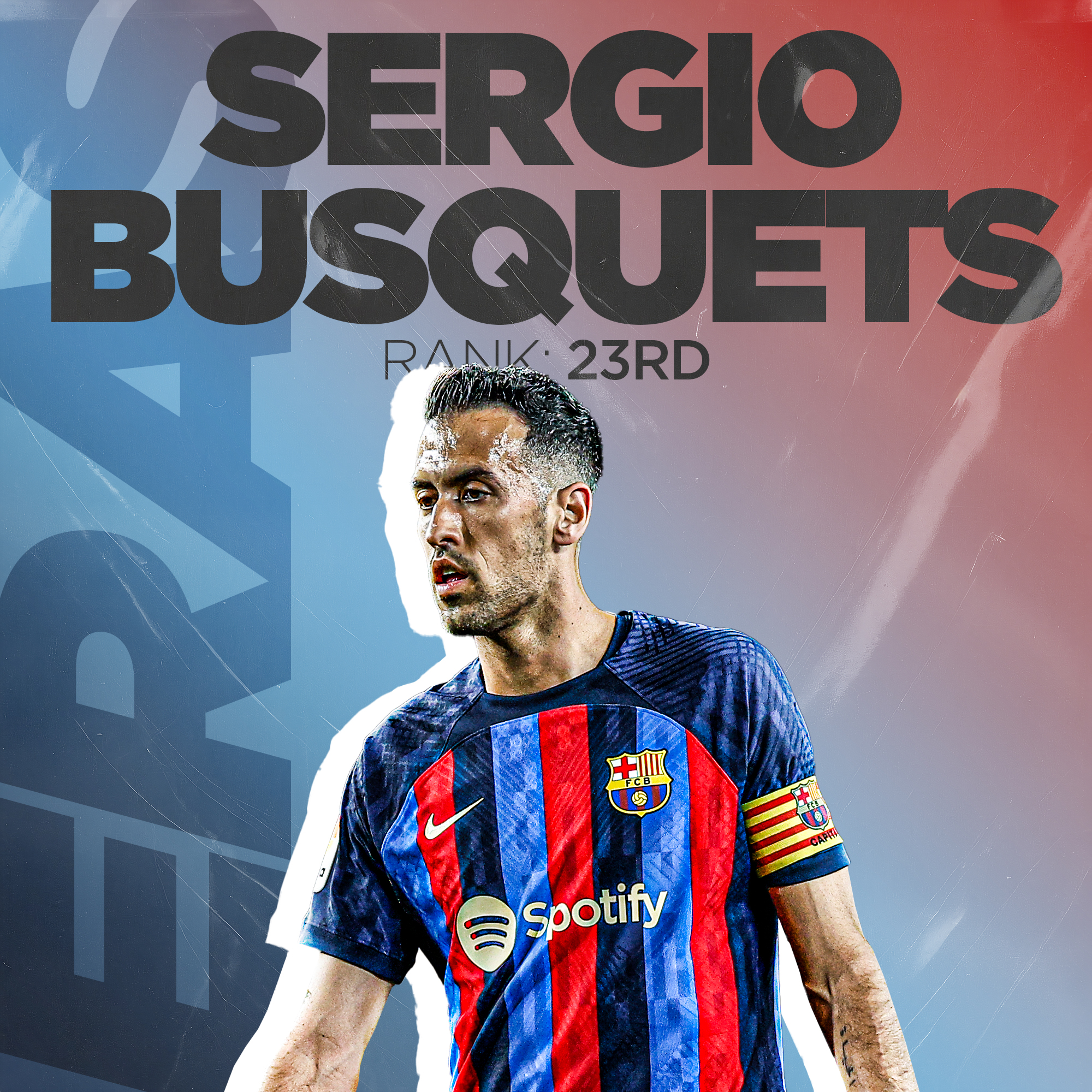
Era teams: Barcelona 2008-23; Inter Miami 2023-present; Spain 2009-22
Signature performance: Busquets is one of the true outliers on this list. He's won the World Cup, European Championship, three Champions League titles, and nine La Liga crowns, all as a central pillar of Barcelona and Spain's success, yet it's hard to pick out any singular performance. That's not a knock but a testament to his consistent excellence.
He almost never scored during his 15 remarkable Barcelona seasons - 18 goals in 722 games - and rarely was credited with assists. Messi got the attention. Xavi and Andres Iniesta, too. Others, like Neymar and Luis Suarez, took turns in the spotlight. All the while, Busquets worked his understated magic. In the absence of one signature outing, we'll highlight his 48 El Clasico appearances, the most of any player in history. He was the fulcrum of Barcelona's legendary midfield that controlled so many of those heavyweight tilts, setting the tempo and orchestrating the team's rhythmic possession for over a decade before quietly departing for Inter Miami.
Why he's here: "You watch the game, you do not see Busquets. You watch Busquets, you see the whole game." The famous quote, attributed to former Spain coach Vicente del Bosque, may not even be real. It's origins are unclear. But it doesn't matter, because it so perfectly encapsulates the subtle genius of the angular midfielder, quite possibly the smartest player on this list.
He was technically a "holding" midfielder. But that description feels inadequate - wrong, even. Busquets redefined his role, changing what it meant to play in front of the backline.
Emerging in an age when prototypical defensive midfielders were tough-tackling athletes tasked with destroying the opposition attack, the languid, lanky Spaniard was the antithesis of that mold. He didn't fly into tackles and break up play. He orchestrated it. He wasn't fast or particularly athletic. To be honest, he was probably the slowest player every time he stepped onto the pitch. It didn't matter. He processed the game faster than anyone. Stronger, quicker, and more agile foes spent hours chasing him around in vain. They were always a step behind. By the time they arrived, the ball was gone, Busquets already thinking two steps ahead, moving himself and his teammates into just the right place to keep the team ticking.
22. Thomas Muller 🇩🇪
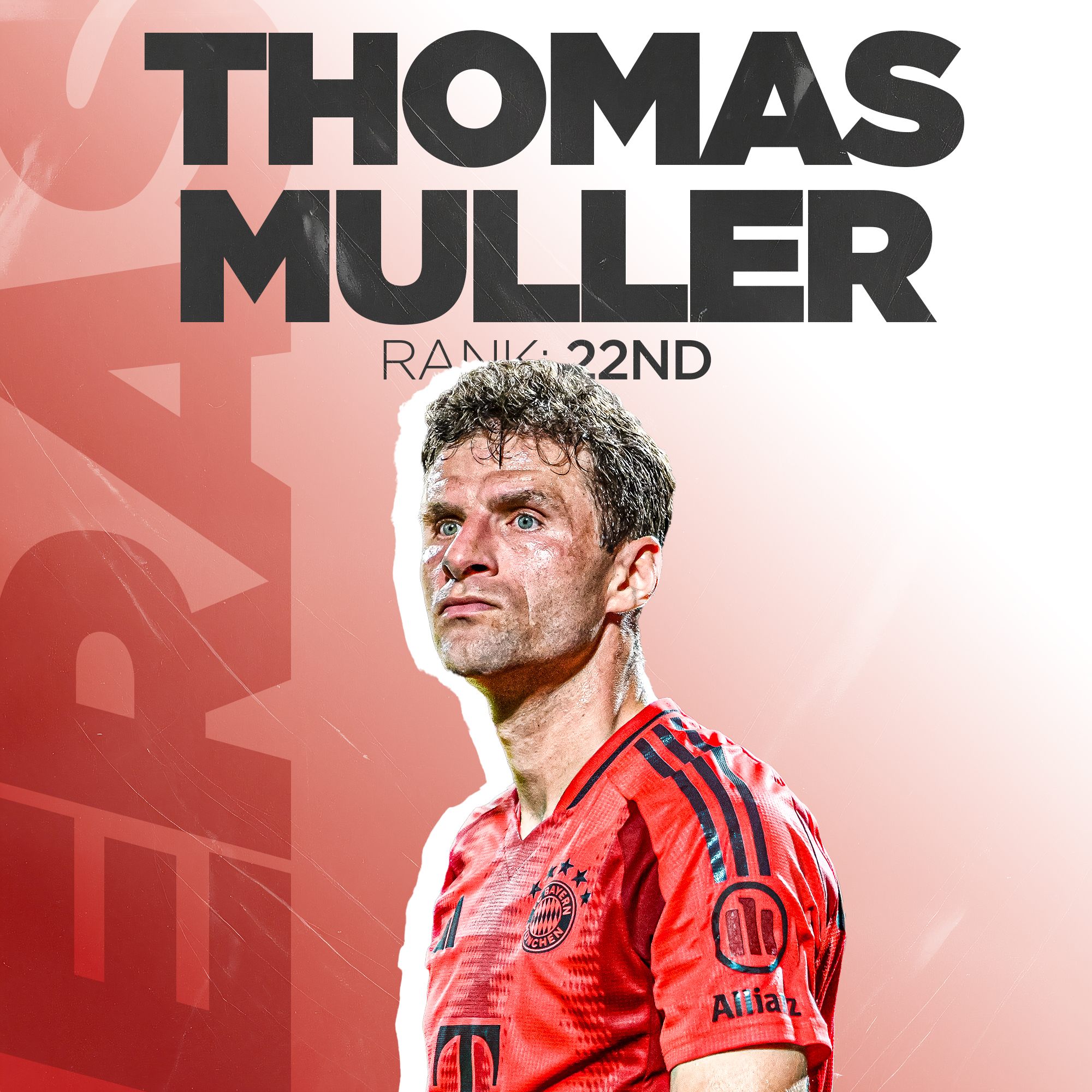
Era teams: Bayern Munich 2008-present; Germany 2010-24
Signature performance: Unerring consistency may be the signature trait of Muller's long career, but he still hit the high notes. During the 2012-13 season, he was instrumental in leading Bayern Munich to Champions League glory. The semifinal first leg against Barcelona, one of the Bavarian club's most famous wins, showcased Muller at his very best. He scored twice and set up another in a 4-0 victory, roaming free on the pitch, popping up everywhere and wreaking havoc.
He finished that Champions League campaign with eight goals - a team high - and over 1,000 minutes played, as Bayern beat rivals Borussia Dortmund in the final to erase the heartache of the previous season and win the coveted competition for the first time in over a decade.
Why he's here: Muller doesn't look like your prototypical superstar. Visually, he's ungainly on the pitch, skinny limbs awkwardly flailing at all times. Stylistically, he isn't a natural fit anywhere. He's not a pure scorer, a second striker, No. 10, attacking midfielder, or winger. But that's a feature of his game, not a bug. The German, 35, is a mixture of them all, famously dubbing himself a "Raumdeuter" - space invader or interpreter - when asked to categorize his underappreciated playing style. "I like to be active in the space in behind the opposition's midfield," he explained. "That's where I can hurt the opponent most of all. It's about instinct." And hurt the opponent he has. A lot.
Muller, Bayern Munich's all-time appearance leader and winningest player, has authored one of the most productive careers of his generation. Durability has been key: he's made no fewer than 27 Bundesliga appearances every year for the past 15 seasons (discounting the current campaign that's still in its infancy). His production level in that time is staggering. His role may be abstract, but the numbers aren't. Here's the full list of players with more league assists than Muller since his Bayern debut in 2008: Messi. That's it. Air doesn't get much more rarefied.
He's the top scoring German in Champion League history. He's part of an exclusive list of players to score at least 10 World Cup goals in their career - he won the tournament's Golden Boot in 2010 - and, with 33 trophies, needs two more to surpass Toni Kroos as the most decorated player Germany's ever produced. Not bad for someone with no discernible style.
21. Robert Lewandowski 🇵🇱

Era teams: Lech Poznan 2008-10; Borussia Dortmund 2010-14; Bayern Munich 2014-22; Barcelona 2022-present; Poland 2008-present
Signature performance: Guardiola's flabbergasted reaction said it all. The then-Bayern Munich manager, mouth gaping and hands on his head, couldn't believe what just saw. Neither could we. The reaction - to this day an evergreen meme - came after Lewandowski scored his fifth goal in nine scarcely believable minutes during a 2015 Bundesliga match against Wolfsburg. Consider, for a second, that Guardiola watched Lionel freaking Messi do otherworldly things just about every single day for several years, yet he still couldn't process what Lewandowski accomplished. Asked afterwards for his thoughts, Guardiola came up empty. "I can't explain it," he said. Same, Pep.
You can watch the entire nine-minute bonanza in the time it would take to describe each goal, including the spectacular tally that capped the explosion:
Why he's here: Scoring goals remains the single most difficult thing to do in soccer - just not for Lewandowski. The volume of production is impossible to ignore. In 17 seasons as a senior player, the Pole failed to reach double digits in league goals only once. Even that comes with an asterisk of sorts: it was his first year at Borussia Dortmund as a 21-year-old, and he started only 15 Bundesliga games. Since then, he's hit the 30-goal benchmark five times in Germany's top flight, including his 41-goal haul in 2020-21, which broke German icon Gerd Muller's longstanding record (49 years) for most goals in a single Bundesliga season.
Lewandowski averaged 26 goals per season over his 12 Bundesliga campaigns. Right foot, left foot, head, he did it all in Germany. You'd think the veteran, now 36, would start slowing down. You'd be wrong. He has 19 goals in 17 matches across all competitions this season with Barcelona.
One final stat, for good measure: Only two players have scored more goals in Champions League history than Lewandowski, and you can likely guess the duo in question. It's also not totally ridiculous to suggest that the prolific Polish striker could surpass second-placed Messi. While that wouldn't offset the 2021 Ballon d'Or that many believed erroneously went to Messi over Lewandowski, it would serve to highlight how exceptional the Warsaw native is.
Follow the rollout all week long. Tuesday: Nos. 16-20.